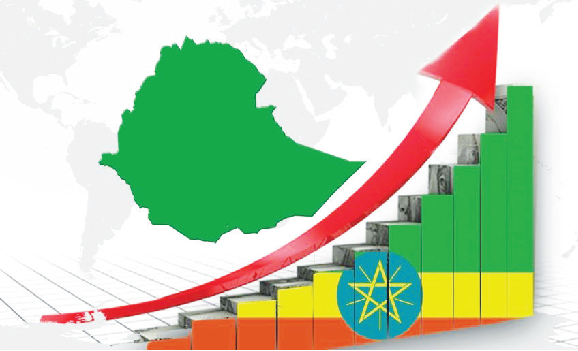
Over the past decades, Ethiopia has seen steady economic growth despite facing internal and external challenges. However, the government’s Ten-Year Development Plan has struggled to meet key goals, including job creation and addressing the rising cost of living. Additionally, much of the government’s expenditure is financed by substantial loans from international financial institutions and development partners, leading to a growing national debt burden.
Ethiopia’s export sector, primarily dependent on agriculture, has not met expectations, resulting in a foreign currency shortage and a significant trade deficit. While the government has aimed to boost exports, especially in agriculture, the desired outcomes have yet to materialize. The government’s efforts to increase foreign currency reserves through improved exports has faced obstacles, and gaps in the provision of social services and infrastructure remain key challenges.
In an interview with the Ethiopian Press Agency (EPA), Public Policy Advisor Professor at Addis Ababa University, Costantinos Berhe (PhD), said that despite these challenges, Ethiopia has made significant infrastructure improvements, such as the construction of 200,000 kilometers of roads and energy projects like the iconic Abbay Dam. In addition, Gilgel Gibe and Koysha dams have been constructed to meet the growing demand for energy that is further intensified by the rapid population growth and industrialization.
Costantinos noted that the agricultural sector has made significant strides, particularly with the introduction of wheat cluster farming, aimed at increasing productivity and reducing wheat imports to enhance food security. To ensure inclusive economic growth, the scholar emphasized the need for the government to revise existing policies and introduce new directives. He also stressed the importance of enforcing the rule of law and ensuring that policies are properly implemented to achieve the envisioned economic goals.
The academician further emphasized the crucial role of public officials and executives in supporting Ethiopia’s path toward prosperity, urging them to be committed to their roles and work alongside the government. Additionally, he underscored the importance of collaboration with non-governmental organizations, cooperative unions, trade unions, and other societal groups to ease the path toward achieving the targeted economic growth.
Political and Economic Analyst Shewaferaw Shitahun echoed these sentiments, stating that Ethiopia, with its favorable climate and abundant human resources, has the potential to build a strong economy and ensure food security. He pointed to the success of modern agricultural technologies, such as cluster farming, in helping the country realize its economic development goals. The analyst also called for the government to amend land policies, introduce more modern farming systems, and engage closely with investors to drive economic progress.
Moreover, the government is actively expanding Ethiopia’s tourism destinations by constructing new sites, contributing to income generation and economic growth. These tourism projects play a significant role in creating job opportunities and alleviating the high cost of living. Above all, both analysts emphasized the need for the government to prioritize the rule of law, peace, and stability, which are essential to ensuring inclusive economic development.
BY HAILE DEMEKE
THE ETHIOPIAN HERALD THURSDAY 19 SEPTEMBER 2024





